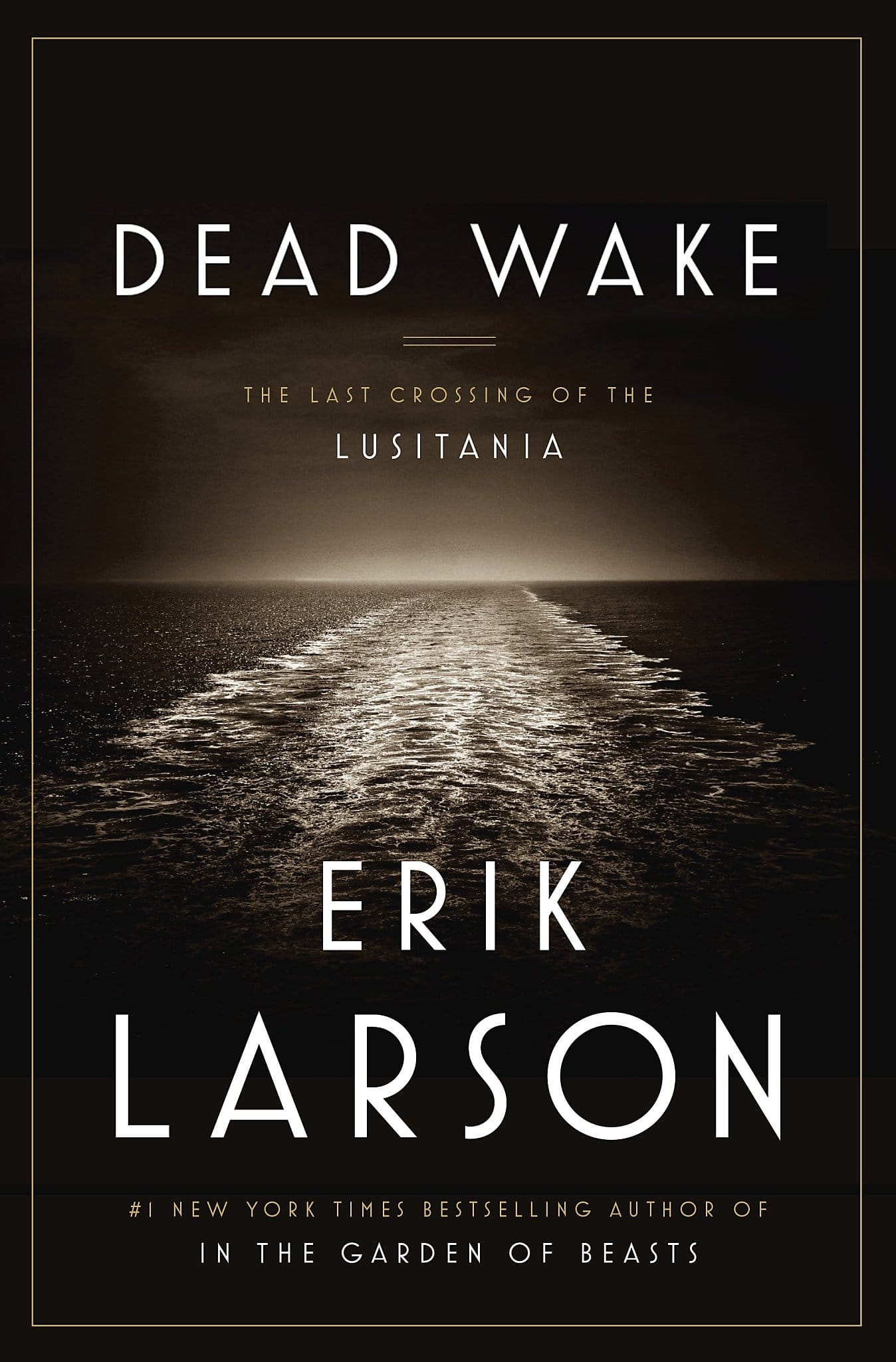This article delves into Erik Larson’s Dead Wake, exploring the historical context of the Lusitania’s sinking, Larson’s meticulous research, and the book’s lasting impact. We’ll examine the controversies surrounding the tragedy, the human stories within, and the enduring questions that continue to intrigue historians. Plunge into the tumultuous events of a distant mirror the calamitous 14th century or explore the power of symbolism in Charles Baudelaire’s L’Albatros for further historical and literary insights.
The Lusitania: A Symbol of Opulence and Innovation
In the early 20th century, the RMS Lusitania represented the pinnacle of maritime engineering and luxury. This British ocean liner, a proud symbol of the Cunard Line, was renowned for its speed and elegance, capturing the spirit of the Edwardian era. However, this symbol of progress would soon become a tragic reminder of the devastating impact of war.
A World at War: The Menace of U-Boats
The First World War cast a dark shadow over the world, transforming the Atlantic into a perilous battleground. German U-boats, employing unrestricted submarine warfare, posed a constant threat to shipping, including passenger liners. This aggressive tactic, while strategically advantageous for Germany, put countless civilian lives at risk.
The Lusitania’s Final Voyage: A Descent into Tragedy
On May 1, 1915, the Lusitania embarked on what would be its final voyage, sailing from New York City to Liverpool. Packed with nearly 2,000 passengers – a microcosm of society ranging from wealthy elites to hopeful immigrants – the ship sailed into the escalating tensions of the Atlantic. Just six days later, on May 7, 1915, tragedy struck. Off the coast of Ireland, the German U-boat U-20, commanded by Kapitänleutnant Walther Schwieger, fired a single torpedo, sealing the Lusitania’s fate. Within a mere 18 minutes, the grand liner vanished beneath the waves, claiming the lives of over 1,100 people, including 128 American citizens.
Lingering Questions and Enduring Mysteries
The swift demise of the Lusitania immediately sparked controversy and speculation. Dead Wake delves into these unresolved questions, examining the evidence and presenting different perspectives.
A Secret Cargo?
Rumors persist that the Lusitania carried undeclared munitions, making it a potential military target. While not definitively proven, this theory raises complex questions about the ethics of war and the rules of engagement. Some historians suggest the possibility of a secondary internal explosion caused by these munitions, contributing to the ship’s rapid sinking. However, this remains a topic of ongoing research and debate.
Intelligence Failures?
Larson explores whether British intelligence agencies could have done more to protect the Lusitania. Did they fail to adequately assess the U-boat threat or relay crucial warnings to the ship’s captain? The role of Room 40, the British naval intelligence department, and its intercepted German communications, remains a subject of scrutiny. Some historians argue that the Admiralty deliberately downplayed the risk to encourage American intervention in the war, a claim that remains highly contested.
The Speed of the Sinking
The Lusitania’s rapid descent continues to puzzle experts. Was a single torpedo enough to cause such swift destruction? Larson examines various theories, including the possibility of a second explosion (internal or a second torpedo), design flaws in the ship’s construction, and the impact of the cargo on its stability. Ongoing research continues to explore these factors, seeking a conclusive explanation.
Erik Larson’s Masterful Storytelling
Dead Wake distinguishes itself through Larson’s engaging narrative style. He meticulously reconstructs the events leading up to the sinking, drawing on primary sources such as diaries, letters, and official documents. By interweaving the perspectives of key figures like Captain William Turner of the Lusitania and Walther Schwieger of the U-20, Larson creates a suspenseful and emotionally resonant narrative.
The Lusitania’s Enduring Legacy: A World Changed
The sinking of the Lusitania became a pivotal moment in World War I, profoundly impacting public opinion, particularly in the United States. The loss of American lives fueled anti-German sentiment and contributed significantly, though perhaps not solely, to America’s eventual entry into the war. The disaster also prompted changes in maritime safety regulations and raised crucial questions about the conduct of war in the modern age.
Delving Deeper into Dead Wake
What is the plot of Dead Wake?
Dead Wake unfolds on multiple levels, interweaving the stories of passengers aboard the Lusitania with the actions of the German U-boat crew. Larson builds suspense by juxtaposing the luxurious world of the passengers with the impending danger lurking beneath the surface. The narrative culminates in the dramatic sinking, followed by the chaotic aftermath and the complex political ramifications.
What is the meaning of “dead wake”?
The title “Dead Wake” is multi-layered. It refers to the literal trail left by a ship but also symbolizes the lasting impact of the tragedy – the ripples of loss, political maneuvering, and historical consequence. It speaks to the enduring questions that continue to haunt us about this pivotal event.
What are the key themes of Dead Wake?
Dead Wake explores several interwoven themes: the human cost of war, the dangers of unchecked power and technological hubris, the moral ambiguities of conflict, the challenges of accountability, and the fragility of peace. Larson doesn’t offer easy answers but encourages readers to grapple with these complex issues.
Key Takeaways from Dead Wake
- The Lusitania: A symbol of Edwardian opulence and technological achievement, ultimately a victim of wartime circumstance.
- World War I Context: The sinking occurred amidst the escalating tensions and unrestricted submarine warfare of WWI.
- The Sinking: A swift and devastating tragedy, claiming over 1,100 lives and shocking the world.
- Unanswered Questions: The circumstances surrounding the sinking, including the presence of munitions and the speed of the descent, continue to generate debate.
- Erik Larson’s Contribution: Dead Wake offers a compelling and meticulously researched account of the tragedy, blending historical accuracy with engaging storytelling.
- Historical Significance: The sinking of the Lusitania fueled anti-German sentiment in the US, contributing to its entry into WWI and serving as a stark reminder of the human cost of war.
This comprehensive analysis of Dead Wake explores the historical, political, and human dimensions of the Lusitania’s sinking, offering a deeper understanding of this pivotal event and its enduring legacy.
















1 thought on “Dead Wake: A Deep Dive into the Lusitania’s Last Crossing”
Comments are closed.